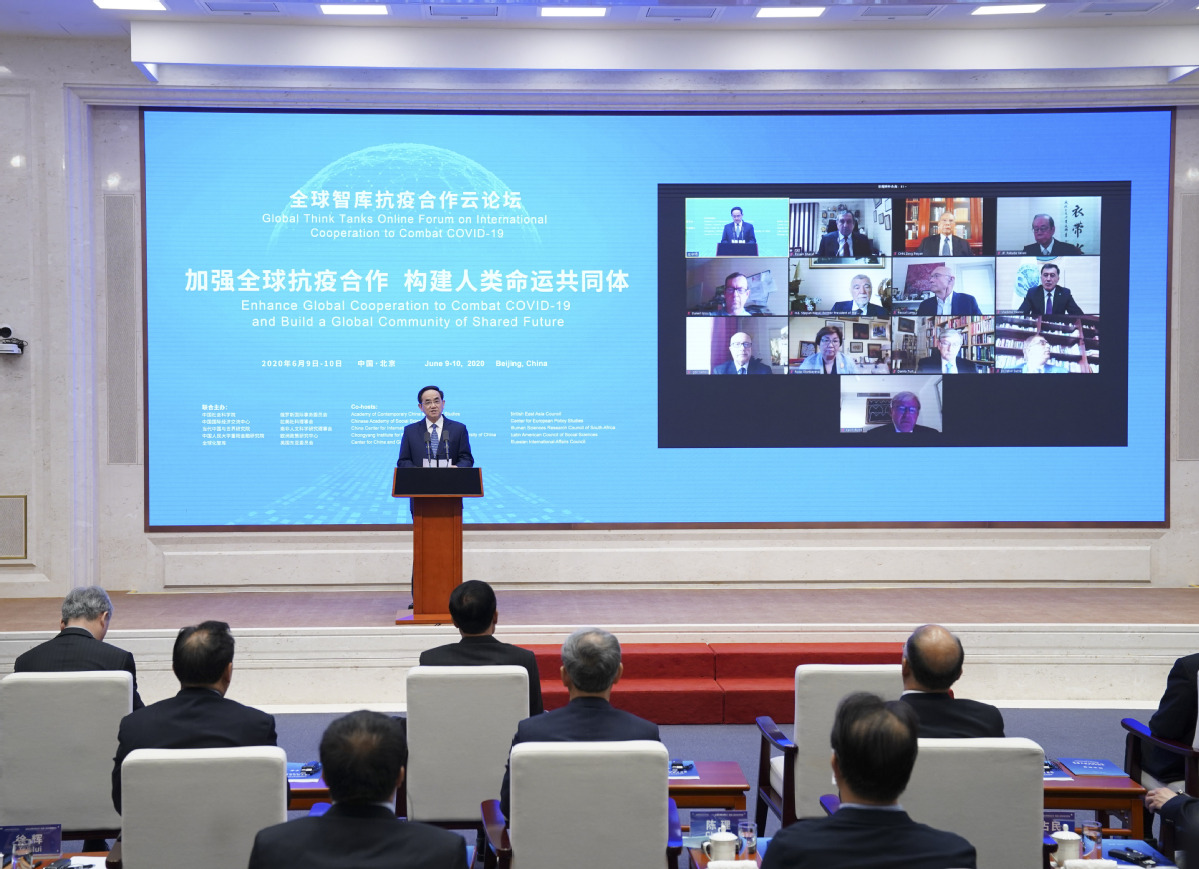Global health leadership needed to battle pandemic

“The global spread of the coronavirus has demonstrated a lack of preparedness of both international and national health governance and control mechanisms,” said Alexander V. Lomanov, deputy director for the Scientific Work of Primakov National Research Institute of World Economy and International Relations, part of the Russian Academy of Sciences.
“The renewal of global governance mechanisms is not possible without cooperation among the nations based on solidarity and responsibility,” he said. “It is obvious that without trust, it is impossible to find a common way out of the crisis created by the global problems of recent years and provoked by the pandemic.”
Lomanov was speaking at a subforum of the Global Think Tanks Online Forum on International Cooperation to Combat COVID-19, held in Beijing.
A thorough analysis of the experience in the virus fight is needed to develop new mechanisms for rapid global monitoring and a response to emerging infectious diseases, he said, adding that the role of major international organizations such as the World Health Organization in global health governance should not be undermined.
“Baseless accusations against China and the WHO destroy trust between countries and become an obstacle to uniting the efforts of all members of the world community,” he said. “Reform of the WHO can only be achieved by consensus among all members of the organization, and not by the will of one country that openly blackmails others by threatening to stop paying fees to the WHO budget.”
Yu Yunquan, president of the Academy of Contemporary China and World Studies, said that international cooperation should be further intensified, with key international organizations such as the WHO as the link, to improve the world’s ability to handle major public health emergencies such as outbreaks of major infectious diseases.
Concerted efforts from various countries and regions are needed to solve problems such as a lack of a coordination mechanism for the international flow of medical resources in case of emergencies, improve international cooperation in scientific research while coping with public health emergencies and to reduce patent barriers, he said.
Meanwhile, a highly efficient international coordination mechanism for decision-making and implementation among different countries should be established for better global health governance, he said. “The current virus should not divide countries. It should unite countries and bound all human beings together,” said Alistair Michie, secretary general of the British East Asia Council.
“At an international level, unity is crucial to defeat global challenges that can only be resolved by nations collaborating with trust and goodwill,” Michie said.













